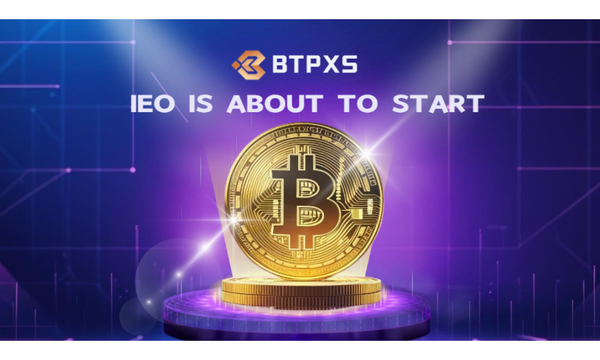How DAOs can leverage the power of zero-knowledge proofs

In this article, we will see some examples of how zero-knowledge proofs (ZKPs) can enhance the security and privacy of Decentralized Autonomous Organizations (DAOs). Since 2020, the adoption of DAOs has risen significantly, with over 12,000 DAOs currently in existence, mostly on Ethereum's open ledger. As a relatively new concept, DAOs continue to evolve, and it's important to explore new ideas to assess their efficiency and scalability. ZKPs are one such idea worth considering.
While blockchains are often transparent, DAOs might want to keep certain data or processes private. One way to achieve privacy on public blockchain networks is through zero-knowledge proofs (ZKPs). ZKPs are a method for one party to cryptographically prove to another that they possess knowledge about a piece of information without revealing the actual underlying information. In the context of blockchain networks, ZKPs reveal only that some hidden information is valid and known by the prover with a high degree of certainty. Some examples of Zero-Knowledge rollups are Polygon ZK, ZKSync, Starknet, Scroll, etc.
Private Payroll
One key ZK application for DAOs is private payrolls. The use of zero-knowledge technology will allow DAOs to provide confidential on-chain payments to both employees and contractors.
It is important for all organizations to keep sensitive details such as salaries private. Public on-chain compensation could potentially cause friction between employees and contractors, as well as reveal valuable information to rivals.
Using ZK technology, DAOs can pay salaries discreetly through multi-sig wallets. This lets the community control funds while keeping things confidential, but all using blockchain. This is a powerful combination that DAOs can use to their advantage.
Anonymous Voting
Public voting remains one of the key strengths of DAOs, but there may be some issues where the votes need to be kept secret. This is common in elections, allowing people to vote without worrying about getting in trouble or feeling pressured. Sometimes, public voting can lead to voting apathy, lowered participation, and information asymmetry. Let me give three scenarios where public voting could be a problem.
- In a vote where a minority group heavily influences the outcome, undecided voters may assume that the decision has already been made and abstain from voting or forming an opinion. This lack of participation may result in the minority group's desired outcome winning, which does not accurately represent the majority opinion.
- A malicious whale may wait until the last minute to purchase or borrow the exact amount of tokens necessary to sway a vote. This could occur at a moment when the rest of the community has no time to respond, allowing the whale to manipulate the outcome of the vote.
- If voting results are made public and everyone can see who voted for what, it can lead to targeted harassment or ostracism of those who voted against the majority. This creates an unequal and unjust environment.
Snapshot, a popular voting platform, released a feature called "shielded voting" in collaboration with Shutter Network. This feature allows DAOs to vote privately, revealing the results only after the proposal duration has ended. The feature uses a technique called threshold cryptography or encryption, which enables a group of key holders to provide a cryptographic lock that can only be opened if a threshold number of members collaborate.
The "shielded voting" feature can solve the first two scenarios, but the third point remains unresolved. However, DAOs can use ZKPs to enable secret ballots, just like regular organizations. Members can vote (by holding a token or NFT) without revealing their wallet address or their choice.
Different issues might need different ways of voting, and ZK lets DAOs have that flexibility. They can choose the election method that works best for them.
Decentralized Identity
Decentralized identity (DiD), also known as self-sovereign identification, refers to the concept of users having control over their own digital identities, rather than relying on centralized authorities. These credentials are signed by issuers who can authoritatively connect claims with users, including information such as citizenship, occupation, and educational qualifications.
ZKPs can be used to enhance the privacy and security of decentralized identity systems. By using ZKPs, users can prove their identity without revealing sensitive information, such as their real-world name or location. This can help increase trust in the system and reduce the risk of identity theft or fraud. This can be useful in situations where privacy is essential, such as voting or authentication processes.
For DAOs, DiD (Decentralized Identifiers) through ZK (Zero-Knowledge) technology provides members with seamless access to NFT-gated online spaces. This method combines convenient access for members with a reduction of liability for DAOs, thereby enhancing the overall user experience.
Conclusion
In conclusion, zero-knowledge proofs (ZKPs) have the potential to significantly enhance the security and privacy of Decentralised Autonomous Organisations (DAOs). By leveraging the power of ZKPs, DAOs can keep sensitive data confidential, enable anonymous voting, and enhance decentralized identity systems. As DAOs continue to evolve, it is important to explore new ideas like ZKPs to assess their efficiency and scalability. With ZKPs, DAOs can achieve new levels of privacy and security, helping to build a more trustworthy and resilient decentralized ecosystem.
Check BTC Peers guide of the most promising crypto





